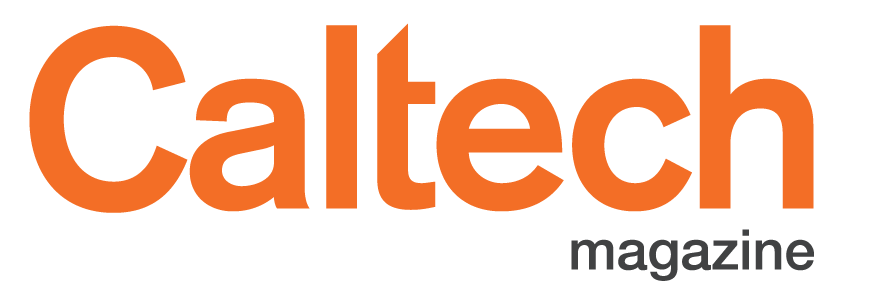Five Questions for Sam Garrison
Sam Garrison joined Caltech in January as the Institute's external relations officer. He works with federal, state, regional, and local government officials and agencies to strengthen relationships with stakeholders and to ensure that Caltech's interests are represented in policy discussions. He also leads community and civic relations to strengthen relationships with community and regional stakeholders. Before joining the Institute, Garrison served as vice president of corporate affairs and executive director of the Caruso Family Foundation. He also has worked as vice president for public policy and government relations at the Los Angeles Area Chamber of Commerce. Garrison began his career as an assistant to Senator Dianne Feinstein and senior legislative aide to Representative Adam Schiff. He holds a law degree from Loyola Law School and is a member of the State Bar of California.
1. What did you know about Caltech, and what had been your experience with the Institute before coming here?
Growing up in Los Angeles, I knew Caltech’s reputation as a world-class institution. However, I learned much more while working on Capitol Hill for Representative Adam Schiff in the early 2000s. We took great pride in representing Caltech in Congress.
In addition, my wife and I are raising our three young children here in Pasadena. Two of them attended the Child Educational Center Cooperative Preschool at Caltech, where we became friends with campus and JPL families. We also have enjoyed exploring campus, visiting the turtles, and attending various public events over the years. This is a very special place.
2. Throughout your career, you’ve been active in service and civic engagement, including as founding board chair for the nonprofit Operation Progress and other organizations. Can you tell us a little about that work and why it’s important to you?
My wife, Kelly, and I have a special interest in working with underserved children. I’ve been on the board of Hillsides foster services here in Pasadena for nearly a decade, and Kelly has been very involved with Dolores Mission School in Boyle Heights and restorative justice programs.
Operation Progress is a great story. It was originally started by a Los Angeles Police Department anti-gang officer in Watts who bootstrapped scholarship money for local children. In 2013, we formalized the program, and, over the next decade, we will be guiding hundreds of scholars from the time they are in elementary school until they are ready to begin careers. The program includes a rigorous private school education, comprehensive life skills development, and wraparound case management. Each scholar is also paired with a neighborhood LAPD officer as a full-time mentor, which is having a major impact on strengthening police-community relations. Later this year, Netflix will release a documentary on the program called A Week in Watts.
3. You began your career in politics serving in the offices of Senator Dianne Feinstein and Representative Adam Schiff. What lessons have you carried with you from that experience?
I am grateful to have worked for two outstanding public servants during a very interesting period that included the 2000 presidential election, the September 11 attacks, and the lead-up to the Iraq War. Senator Feinstein demonstrated the importance of hard work and preparation, especially when working on complicated issues. Representative Schiff reinforced those lessons, always demonstrating an incredible sense of decency and commitment to bipartisanship. He also inspired me to attend law school.
4. What would you recommend to someone who wants to explore or get to know the Pasadena area better?
Pasadena is wonderful in that you can combine arts and cultural experiences with a great meal. Our favorites are a morning walk through the Huntington gardens followed by brunch at Julienne on Mission Street in San Marino or a bike ride to the Norton Simon Museum and then a visit to a new restaurant in Old Pasadena. I also recommend Pasadena Heritage’s Craftsman Weekend, where you can take a guided walking tour through different neighborhoods and see wonderful historic homes. Even after living in the area for 12 years, I still have many items to check off my must-do list.
5. How can community and government relations help advance the scientific work that happens at Caltech?
My job is to be an effective advocate for Caltech at all levels of government and to help policy makers better understand the important work happening here. Success means better relationships, more support, and fewer unnecessary headaches for faculty and students. In addition, my job includes continuing to maintain strong community relations in which Caltech is a good neighbor and fosters local and regional pride. It’s an honor to represent the Institute.

